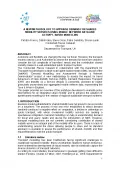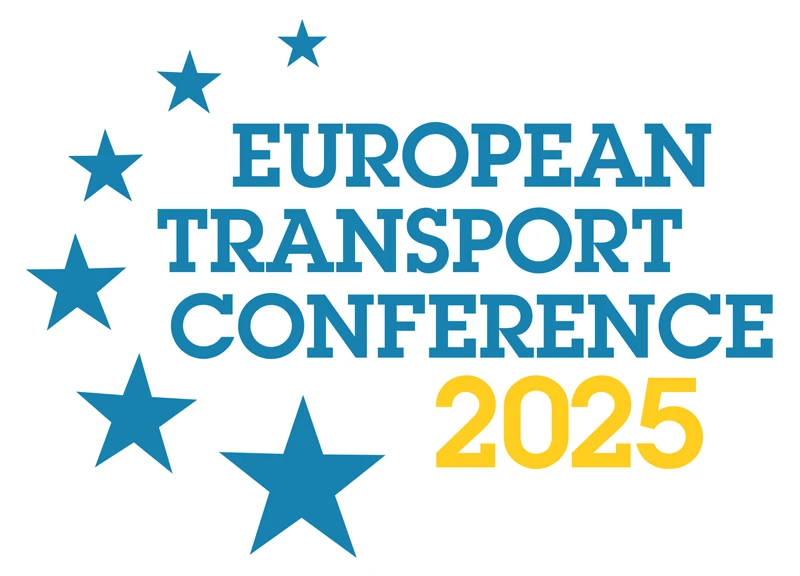-
Past ETC Papers

Browse, search and view papers from the past AET Conferences.
-
Members' Area

AET promotes networking and exchange of ideas, information and opportunities amongst members.
Conference Papers 2020
Online
ETC Conference Papers 2020
A new methodology to appraise demand for shared mobility services using mobile network data and activity-based modelling
Seminar
Day 3 (11 Sep 2020), Session 9, New Modes and Shared Mobility, 15:30 - 17:30
Status
Accepted, documents submitted
Submitted by / Abstract owner
Patrizia Franco
Authors
Franco P, Kaba D, Close S, Galatioto F, Jundi S, Johnston R, Sari N
Short abstract
A new methodology to appraise attitudes towards shared mobility is presented. A regional agent-based model with activity-based approach was created from a trip-chain dataset built from mobile network data, used to generate the synthetic population.
Abstract
Transport modelling tools are not currently considering contribution of shared mobility services as integral part of the mobility offer to users. There is a lack of understanding around the drives allowing people to share and no best practice is available to assess the performance of the services and their impact/interaction with the public transport.
From previous studies, main barrier for the launch of commercially sustainable demand responsive transport services has been identified in the attraction of the right level of demand.
Shared mobility services and more specifically demand responsive transport represents a new mode of transport where no route or timetable (or both) is available to define the service in a model. Also, value of time will differ substantially from widely adopted values.
A foundation study, conducted by the authors, identified two main fundamental requirements for developing demand modelling tools for a shift towards agent-based modelling to represent door-to-door users’ journeys:
• Activity-chains: for a service provider it is important to identify areas with latent demand with a comprehensive understanding of real travel patterns and how trips are distributed during the entire day
• Multimodality: once a shared mode is introduced the model needs to be able to identify split between public transport and the possible modal shift from private cars
This paper focuses on the findings of the “Demand Modelling and Assessment through a Network Demonstrator” (DeMAND) project, which created a prototype modelling tool to appraise shared mobility services and the attitudes of users towards the shared mobility.
The aim of the DeMAND project has been to create a new methodology which leads more widely the introduction of Mobility-as-a-Service in urban and rural areas. This to allow to test policy interventions where shared mobility will be an integral part of the multimodal mobility services offered and lead to a more sustainable and integrated solution.
The prototype modelling tool presented in the full paper is a large-scale agent-based modelling with activity-based approach to forecast travel behaviours for new modes of transport, developed in the open source platform MatSim. The area modelled is the North East of England (2.6 million of population) with a multimodal public transport network comprising 834 bus services, underground and rail services.
The generation of the population, for an average weekly day, is supported by the use of anonymized and aggregated Mobile Network data at a higher spatial and temporal granularity. Two datasets (trip-chains and OD matrix) and land use information were used to assign purpose (work, leisure, education and freight distribution) and mode of transport to all the trips in an activity-chain.
The used of MND at activity chains allowed to represent real travel patterns from areas where no recent or limited amount of data is available.
The generation of the daily activity plans has been automated using a data exploratory framework developed in python to speed-up the analysis and make the process transferable to other case studies.
Agents were created from socio-demographic information from MND, Census and results from an on-line survey of residents (1,500 interviews). A stated preference survey to derive two nested logit models for work and leisure purposes was carried out to identify new marginal utilities for the shared services to be used in the agent-based model.
Findings from the surveys revealed that respondents with household incomes of over £60k (25%) are most likely to consider shared transport. The largest concern with regards to sharing transport was around sharing space with others and how that affects perceived comfort (68%), privacy (67%) and safety (62%).
Respondents all agreed that shared transport would be a more sustainable travel option (66%) with the potential for less congestion (67%) and a better carbon footprint than cars.
It was also explored their attitude towards changing their travel habits, which has been identified as a main barrier to the uptake of new mobility services.
In the stated preferences survey some significant inertia effects where identified and this means that the shared transport service is able to secure the customers’ preference once tried. However, the value of time is higher compared to other mode of transport due to uncertainties of the time of arrival and the issue of sharing the vehicles with other people.
Based on these models the initial modal split adopted in the agent-based model would be 8%.
The agent-based model would test scenarios that will look at introducing shared mobility services in integration with public transport in a newly redeveloped area, which will minimise the use of private cars and the need for parking at interchanges.
Programme committee
Transport Models
Topic
The future of transport
Documents:


Association For
European Transport
Forester House
Doctors Lane
Henley-in-Arden
Warwickshire, UK
B95 5AW
+44 (0) 15 64 793552
VAT number: 710 1866 64
Conference Supporters & Endorsers




Legal Entity
The Association for European Transport is registered as an Association ('vereniging') with the Chamber of Commerce for Haaglanden in The Netherlands under company number 27170096.
Built on Zenario




